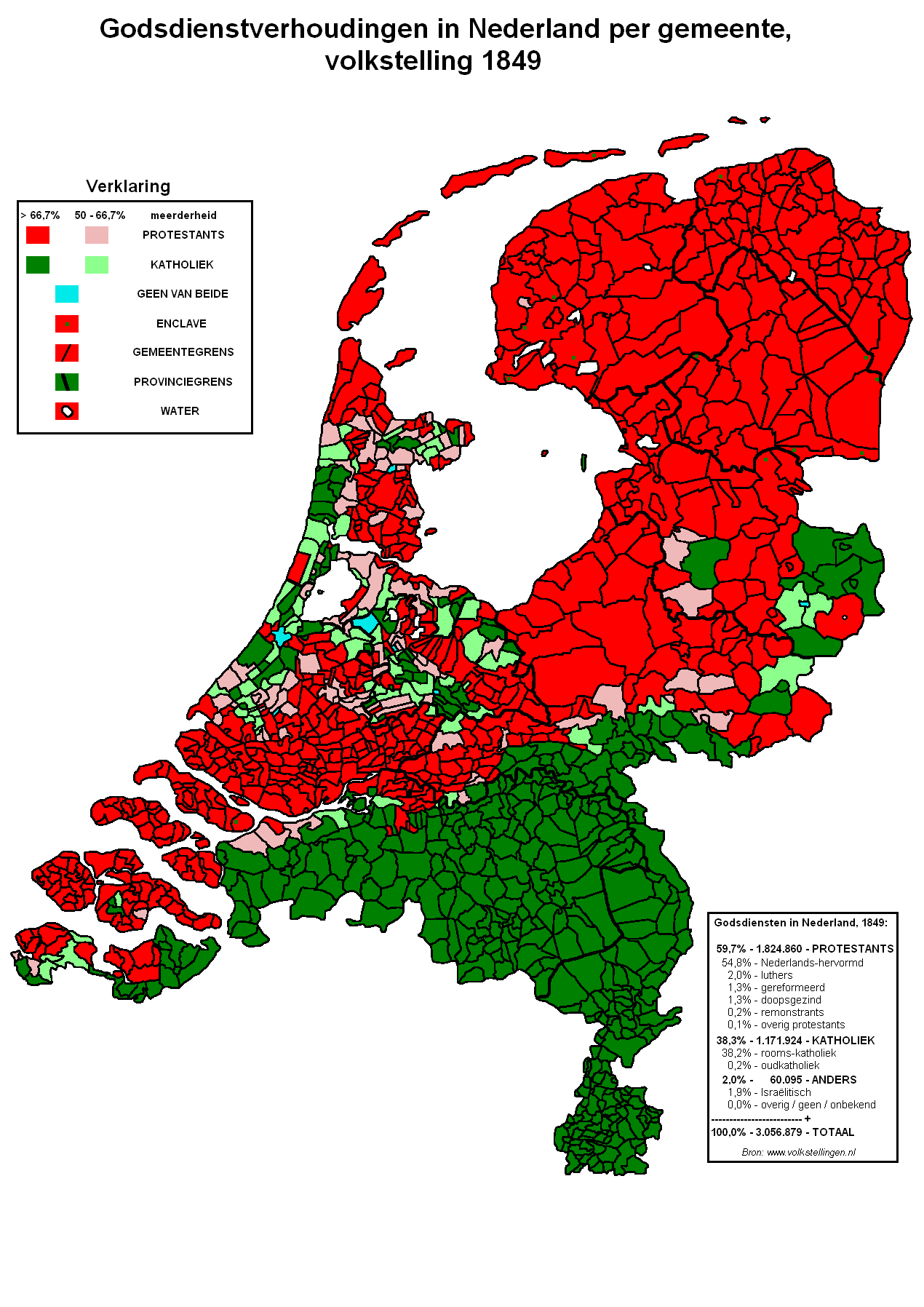Let's start with a confession: yes! the Netherlands has a bible belt and it is prominent and has a continuous present in Dutch parliament. It is also the main group that resists to creates laws against criminalising psychological manipulation and exploitation, a feature that sects use on their followers. Let's look at some maps of the Netherlands. The 12 provinces of the Netherlands are shown in the first figure.
 |
| Fig 1. The 12 Dutch provinces |
In short the main regions in the Netherlands are the 'Randstad', which is most of Zuid-Holland, the southern part of Noord-Holland and most of Utrecht. Or the square Amsterdam (Noord-Holland), Den Haag (Zuid-Holland), Rotterdam (Zuid-Holland) and Utrecht (Utrecht). The West is bit larger and entail the provinces Zeeland, Zuid-Holland, Noord-Holland and Utrecht. This is also historically the most influential region of the country. Then we have the South, which is the area below the rivers Rhine (Rijn) and Meuse (Maas) and are comprised of the provinces Noord-Brabant and Limburg. Finally we have the North, which are the provinces Fryslân (Friesland), Groningen and Drenthe. As you might have noticed, I did not mention the East or the provinces Gelderland and Overijssel or the completely man-made province Flevoland. The reason is that the East is rarely used a specific area in the Netherlands. Of course there are many smaller areas, such as the Achterhoek (most eastern part of Gelderland) and Betuwe (southern part of Gelderland between the rivers Rhine and Waal).
 |
| Fig 2. Religious division in 1849 |
Calvin's version of Christianity caught on in what now is called the Netherlands, resulting in displacement of the Roman Catholic version of Christianity. This can be clearly seen in the Netherlands as the South is predominantly catholic (shown in green in Fig 2) and above the rivers people are predominantly protestant (shown in red in Fig 2).
 |
| Fig 3. Current religious groups, including non-religious (!= atheist) |
This has not changed much over time as Figure 3 shows, with one major difference. The rise of self-proclaimed non-religious people (salmon pink colour in Fig 3). This is not to be confused with atheism or agnosticism, as many of these people do believe in some sort of higher supernatural power, but renounce organised religion.
 |
Fig 4. In colour the extremely religious communities
|
But there is one thing that is striking in the Netherlands and that is the small communities that are deeply religious in a very extremist manner. In not a single community do they make up the majority, but their practises are peculiar in many different ways. In most cases the religious communities are split offs of the more moderate form of protestantism. Their distribution pattern runs from Zeeland to around Staphorst in Overijssel, creating a sort of a belt on a map: the Dutch Biblebelt.
Their strength is clearly present in Dutch parliament by the SGP (Staatskundig Gereformeerde Partij or Political Reformed Party, where reformed refers to a type of protestantism), who have had about 2 of the 150 seats in parliament since 1918 and that number barely changes between elections. In other words, their voters are very loyal, their agenda very religious. These communities also refuse to vaccinate their children, because if they get a disease it is God's will. It is not surprising that the last person in the Netherlands to be diagnosed with polio was a kid from one of these communities, namely Streefkerk in 1992. Depending on the community, they don't pay taxes to the government or have insurances, as their loyalty is with God and not the state. They do pay large sums of their income to their respective churches. And on Sunday it is illegal to do anything as that is the day of the Lord and you must rest and go to church. In some communities is considered to be a sin to have televisions or radios or wear anything that might reveal some skin, especially on Sunday.
In summary, Dutch politics is not free from religious influence, which makes the Netherlands less secular than you might think. The consequences of making sect-like behaviours a criminal offence, especially psychological manipulation, very unlikely, as these Dutch bible-belt communities would have to be considered sects. No self-respecting politician in the Netherlands wants to burn their hands on these communities, even though none of them would ever vote for them anyway. A very strange relationship, indeed and it shows the power of well organised and financially able extremists groups.




No comments:
Post a Comment